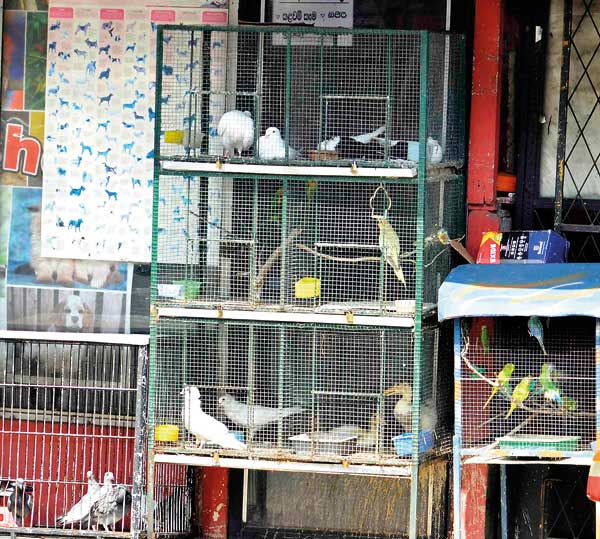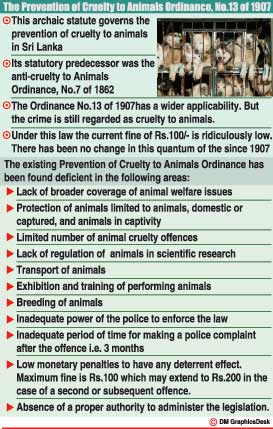Reply To:
Name - Reply Comment
Last Updated : 2024-04-18 20:29:00

.jpg) A cluster of rather tiny cages chockfull of various birds, kittens, rabbits and puppies crowd the entrance to the wee pet shop located alongside the pavement bordering the busy road, a few feet away from the Jubilee Post junction. The twittering of birds and whines of puppies coupled with the stench of animal faeces and putrefying food set off a rather foreboding tone to anyone who approaches the shop. Nevertheless, it is frequented by many and is even listed in several websites as a popular pet store that not only sells ‘healthy, live animals’ but facilitates every pet need including food and cages.
A cluster of rather tiny cages chockfull of various birds, kittens, rabbits and puppies crowd the entrance to the wee pet shop located alongside the pavement bordering the busy road, a few feet away from the Jubilee Post junction. The twittering of birds and whines of puppies coupled with the stench of animal faeces and putrefying food set off a rather foreboding tone to anyone who approaches the shop. Nevertheless, it is frequented by many and is even listed in several websites as a popular pet store that not only sells ‘healthy, live animals’ but facilitates every pet need including food and cages.
.jpg) Senior environmentalist and environmental lawyer, Jagath Gunawardena says the regulations pertaining to animal cruelty at present are mostly directed towards acting on any reported incidents and not towards prevention. Senior environmentalist and environmental lawyer, Jagath Gunawardena says the regulations pertaining to animal cruelty at present are mostly directed towards acting on any reported incidents and not towards prevention.He said, “There are several laws that can be made use of including The Prevention of Cruelty to Animals Ordinance, No.13 of 1907 and the Animal Diseases Act to take action against animal cruelty but they are all concerning action that can be taken once an incident is reported. However, local government regulations can be used when providing approval for the operation of pet shops and to ensure that the premises in which they are operating in are fit to hold animals. However, the scope is limited, which is why a proposal was made about a decade ago for the establishment of an Animal Welfare Act which is yet to be implemented and given the present plight of animal trade I would say is a timely need.” |

 the council and introduce a set of regulations that would be implemented through the council so that ill-treatment of dogs - not just pure breeds but also community dogs could be prevented while launching welfare programmes for these animals. We presented the proposal about five years ago and we are yet to receive responses from the government.”
the council and introduce a set of regulations that would be implemented through the council so that ill-treatment of dogs - not just pure breeds but also community dogs could be prevented while launching welfare programmes for these animals. We presented the proposal about five years ago and we are yet to receive responses from the government.”
Add comment
Comments will be edited (grammar, spelling and slang) and authorized at the discretion of Daily Mirror online. The website also has the right not to publish selected comments.
Reply To:
Name - Reply Comment
On March 26, a couple arriving from Thailand was arrested with 88 live animal
According to villagers from Naula-Moragolla out of 105 families 80 can afford
Is the situation in Sri Lanka so grim that locals harbour hope that they coul
A recent post on social media revealed that three purple-faced langurs near t

10 Apr 2024
09 Apr 2024